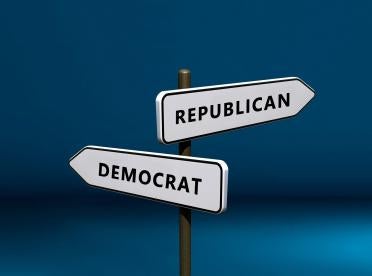In recent months, Congress’s efforts to reform dramatically the Foreign Agents Registration Act (“FARA”) have picked up steam. As we explained in our recent FARA guide, FARA is a complex and broadly worded criminal statute that requires any "agent of a foreign principal" to register with the Department of Justice and file detailed public reports every six months. The breadth of the statute, its criminal penalties, the absence of interpretive guidance, and the growing attention paid to the 1930s era law by federal prosecutors combine to create dangerous and difficult-to-manage risks for multinational companies, lobbying firms, and public relations firms. FARA reform bills making their way through Congress could introduce new uncertainties and sweep still more companies within the statute’s broad scope.
What's Happening Now?
Here is the current state of play: As we noted in our November 2017 client advisory, Senator Charles Grassley (R-Iowa) and Representative Mike Johnson (R-La.) introduced identical bills, the Disclosing Foreign Influence Act. The legislation proposed to increase the Department of Justice's authority to investigate FARA violations and to reverse a 1995 Congressional decision that removed most private sector reporting from FARA and placed it under the companion Lobbying Disclosure Act.
The Grassley-Johnson bill has now started to move. On January 17, 2018, the House Judiciary Committee reported it out of committee. Committee Democrats objected, with Rep. Nadler arguing that the bill was not "yet ripe for markup, as it might raise several constitutional and policy questions," but the bill moved forward on a 15 to 6 vote without a hearing.
About six weeks later, on March 1, 2018, Senator Feinstein (D-Cal.) introduced a second and slightly different FARA reform bill, the Foreign Agents Registration Amendment Act of 2018, cosponsored by Senator Cornyn (R-Tex.) and others. Like the Grassley bill, the bill was referred to the Committee on Foreign Relations. It is not yet clear when this bill or the Grassley bill will be considered in the Committee, but the press is reporting that many companies are expressing concerns about the proposed changes to FARA.
Grassley-Johnson vs. Feinstein-Cornyn
Both the Grassley-Johnson and Feinstein-Cornyn bills have the same underlying objectives. Most importantly, they remove the Lobbying Disclosure Act exemption from FARA, potentially subjecting much private lobbying activity to FARA registration where private entities and individuals previously were permitted to register and report only under the less burdensome and less stigmatizing Lobbying Disclosure Act. The bills also focus on enhancing FARA enforcement.
There are, however, some important differences. For example, while both bills remove the Lobbying Disclosure Act exemption from FARA, the Feinstein-Cornyn bill adds an exemption to the Lobbying Disclosure Act for FARA registrants. The Grassley-Johnson bill, however, does not address this, potentially leaving some foreign non-governmental entities subject to registration and reporting under both the LDA and FARA, a significant administrative burden. The Grassley-Johnson bill imposes new more burdensome reporting requirements on private FARA registrants registered under the LDA, requiring that they file FARA reports quarterly, instead of on a semi-annual basis as currently provided in the statute. Other differences in the bills focus on enforcement and penalties. A chart summarizing the differences between the bills follows below:
|
Topic |
Grassley-Johnson Bill |
Feinstein-Cornyn Bill |
|
Removal of Lobbying Disclosure Act exemption |
Yes |
Yes |
|
Creation of an LDA exemption for FARAregistrants |
No |
Yes |
|
Change of frequency for FARA reporting |
Change from semi-annual to quarterly for those registered under the LDA on behalf of foreign clients other than foreign governments and foreign political parties |
No change |
|
Addition of civil investigative demand ("CID") authority |
Yes |
Yes |
|
Procedural CID requirements |
Enhanced procedural safeguards, including 5-year sunset
|
Limited discussion of procedural safeguards |
|
Executive Branch reports to Congress |
Yes |
No |
|
New FARA Unit |
No |
Yes |
|
“Operatives of foreign governments” |
No |
Changes terminology. A separate criminal provision currently requires “agents of a foreign government” to provide a |
|
|
|
notification of their status to the Attorney General. The bill changes this term to “operative of a foreign government,” possibly to avoid confusion with FARA. This criminal statute has traditionally been used to prosecute foreign spies. |
|
Penalties |
Not addressed |
Specific criminal and civil penalties added |
|
Requirement for FARA registrants to disclose registration before or during meeting with a Member or staffer of Congress |
No |
Yes |
|
Enhancement to public FARA database |
Regulations required to be adopted that provide for online filing and other database enhancements |
Not addressed |
|
Effective Date |
180 days after enactment |
Not addressed |
Potential Consequences of Both Bills
Both bills’ proposed repeal of the LDA exemption would likely return all foreign related lobbying to disclosure under FARA. This would have a sweeping effect for a number of private sector companies.
First, a U.S. subsidiary of a foreign headquartered business would no longer be able to register under the LDA for certain of its U.S. activities. To the extent that the U.S. political activities were directed by the company’s foreign parent or financed by the parent, the U.S. subsidiary would become an agent of the foreign parent corporation. Likewise, even a U.S. company could have FARA obligations if it engaged in political activities related to a foreign subsidiary or affiliate. Even if the U.S. company directs the political activities, acting as a representative of the foreign affiliate on an issue “for or in the interest” of the foreign affiliate could give rise to a FARA obligation.
Second, an employee of a foreign company who traveled to the United States to engage the
U.S. political system on a matter affecting a foreign business may trigger FARA. Finally, any U.S.-based lobbying, law, public relations, or consulting firm that provided services to individuals and companies abroad could trigger FARA. The scope of activities covered by FARA are very broad and include, for example, providing public relations advice and political consulting services, in addition to political activities and lobbying, within the United States.
The bills would therefore cause many individuals and entities who previously relied on the LDA exemption to shift their focus to determining whether FARA's other exemptions, such as the "commercial exemptions," apply.
But the scope and contours of FARA's "commercial exemptions" are notoriously vague. The commercial exemption set forth in the FARA statute does not apply to activities intended to influence the U.S. Government or a section of the U.S. public with respect to policy matters. And a related commercial exemption set forth in the FARA regulations applies only to foreign corporations where the activities are "directly in furtherance of the bona fide commercial, industrial, or financial operations of the foreign corporation." Furthermore, the activities cannot be "directed by a foreign government or foreign political party," and cannot "directly promote the public or political interests of a foreign government or a foreign political party."
None of these critical terms are defined in any meaningful way in the statute or regulations and the Department of Justice's FARA Unit does not publish advisory opinions or other guidance that addresses these issues. Is lobbying in connection with a broad-based policy issue like climate change "directly in furtherance of the bona fide commercial" operations of the foreign corporation? When does work done in tandem with a foreign government become work "directed by" the foreign government? When does work "directly promote the public or political interests of a foreign government"? Does lobbying on a tariff-related issue on which both the company and the foreign government have an interest remove a company from the commercial exemption? These questions, which come up routinely for multinational companies, are left unaddressed in the proposed legislation. As a result, by forcing individuals and entities to focus exclusively on whether the vague commercial exemption applies to their activities, the proposed bills will introduce even more ambiguity into this notoriously broad and vague criminal statute. Ironically, with the LDA exemption repealed, some companies that currently register and disclose under the LDA as an added layer of FARA compliance might choose instead to rely on the commercial exemptions (when they apply) and therefore not register at all. This would be a perverse outcome. The existence of an LDA exemption for bona fide corporations conducting business in the United States has helped to expand public disclosure while minimizing undue administrative burdens.
In light of the challenges presented by the two FARA reform bills that are currently pending, numerous alternative proposals are circulating on the Hill, and the final form of any FARA reform legislation is far from clear.




 i
i

